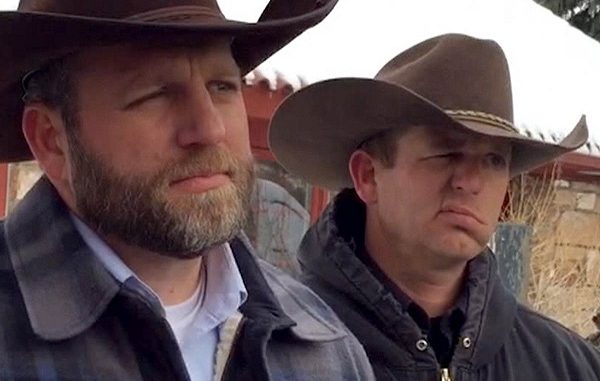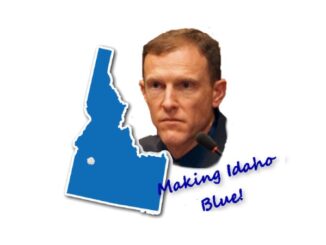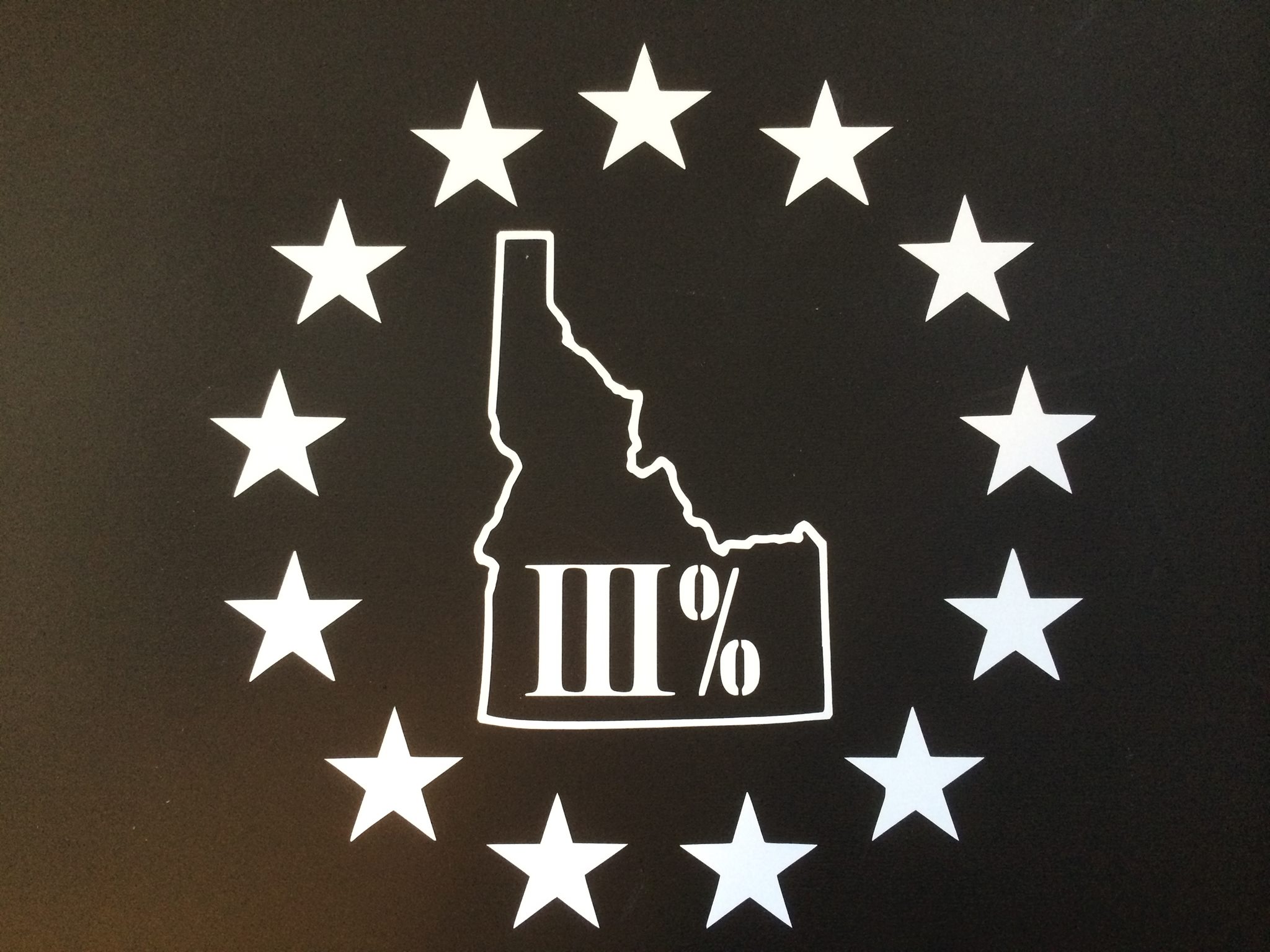
Judge Brown Stacking the Deck Against the Bundys
By Shari Dovale and Bret Roush
Judge Anna Brown seems to determined to taint the jury pool in favor of the prosecution in the Malheur Protester case in Oregon.
Jury Selection began today in Portland, with Judge Brown leading the procedures to whittle down 1500 potential jurors to about 200. Those proceedings were not without tremendous government bias.
Several reports on social media from witnesses in the courtroom today show the prejudice against the defendants. About 25% of the court questionnaires were returned and those were heavily laced with quotes from the leftist media.
Some of the most notable statements from the potential jurors included:
- I don’t believe the public should be allowed to carry guns. Only the police and law enforcement should be able to.
- I am an attorney. I believe laws were broken. The whole thing was stupid. The 2nd amendment should be repealed. It was an ineffective protest.
- There are limits to all of our rights of the 2nd amendment to maintain a civil society. Whatever limits Judge Brown puts on the jurors should be followed as law states.
All of these potential jurors were allowed to remain in the jury pool.
More of the other potential jurors remaining in the pool include:
- A person who works with the prosecution’s wife.
- A man who is employed by the BLM and Fish/Wildlife.
- A person who’s stepson is FBI.
- A person who said yes I believe it was wrong to take over a place and yes I believe they broke the law.
At one point, Judge Brown said anybody who holds an erroneous position against the law will be dismissed. Morgan Philpot brilliantly used these words against her, saying, “ I carry a gun, because I have a gun right. You are opposed to me having that right, therefore you hold an erroneous position against the law.”
Toward the end, Ryan Bundy scored a big win when the prosecution and Judge Brown attempted to exclude a potential juror because they stated they do not believe the BLM has the right to own land. Brown tried to say that the person is biased, therefore unacceptable as a juror. However, Bundy stood up and argued that the juror was dismissed before the defense had been given an opportunity. Knowing she was wrong, Judge Brown brought back that person back into the jury pool.
It is painfully obvious that the deck is being stacked against the Political Prisoners. This trial will show the governments temperament when any citizen disagrees with them.






some one please send this to anna brown………….please
US Constitution, Article 3. Section 1: “… The judges, both of the supreme and inferior (state) Courts, shall hold their Offices during good Behaviour”…”
Charge the judge with misbehavior, and start removing that judge from office. The US Constitution says what is good behavior for judges – taking and KEEPING their Oath(s) (sometimes they have two or a combined one), doing their duties as constitutionally assigned. That is not much to ask of a judge, but that is what is required and this one seems to be overstepping the boundaries (most important and lawful contract) Judge Brown serves under.
Call up your own *Grand Jury Investigation as it is the people’s tool, and investigate every thing that judge has done in office. If find more things being committed by that judge that goes against the duies and the US Constitution; charge and call forth a Grand Jury for the trial – they too are the people’s tool to hold accountable those who serve within our governments.
Justice ROBERT H. JACKSON (Morisette v. United States, 342 U.S. 246): “But juries are not bound by what seems inescapable logic to judges.”
Thomas Jefferson: “I consider trial by jury as the only anchor ever yet imagined by man, by which a government can be held to the principles of its constitution.”
Theophilus Parsons (2 Elliot’s Debates, 94; 2 Bancroft’s History of the Constitution, p. 267): “If a juror accepts as the law that which the judge states then that juror has accepted the exercise of absolute authority of a government employee and has surrendered a power and right that once was the citizen’s safeguard of liberty, — For the saddest epitaph which can be carved in memory of a vanished liberty is that it was lost because its possessors failed to stretch forth a saving hand while yet there was time.”
Instruction to jurors in criminal cases in Maryland (Quoted by Alan Scheflin and Jon Van Dyke, “Jury Nullification: the Contours of a Controversy,” Law and Contemporary Problems, 43, No.4, 83, 1980): “Members of the Jury, this is a criminal case and under the Constitution and the laws of the State of Maryland in a criminal case the jury are the judges of the law as well as of the facts in the case. So that whatever I tell you about the law while it is intended to be helpful to you in reaching a just and proper verdict in the case, it is not binding upon you as members of the jury and you may accept or reject it. And you may apply the law as you apprehend it to be in the case.”
Justice Byron White (1975): “The purpose of a jury is to guard against the exercise of arbitrary power–to make available the common sense judgement of the community as a hedge against the overzealous or mistaken prosecutor and in preference to the professional or perhaps over
conditioned or biased response of a judge.”
Justice Thurgood Marshall (Peters v. Kiff, 407 US 493, 502 (1972)): “Illegal and unconstitutional jury selection procedures cast doubt on the integrity of the whole judicial process. They create the appearance of bias in the decision of individual cases, and they increase the risk of actual bias as well.”
John Adams: “It is not only [the juror’s] right, but his duty…to find the verdict according to his own best understanding, judgment, and conscience, though in direct opposition to the direction of the court.”
Thomas Jefferson, “Notes on Virginia,” 1782: “…..it is usual for the jurors to decide the fact, and to refer the law arising on it to the decision of the judges. But this division of the subject lies with their discretion only. And if the question relate to any point of public liberty, or if it be one of those in which the judges may be suspected of bias, the jury undertake to decide both law and fact.”
Thomas Jefferson: “No provision in our Constitution ought to be dearer to man than that which protects the rights of conscience against the enterprises of the civil authority.”
Chief Justice John Jay, Georgia v. Brailsford: “It is presumed, that juries are the best judges of facts; it is, on the other hand, presumed that courts are the best judges of law. But still both objects are within your power of decision…..you have a right to take it upon yourselves to judge of both, and to determine the law as well as the fact in controversy.”
Alexander Hamilton: “Jurors should acquit, even against the judge’s instruction…if exercising their judgement with discretion and honesty they have a clear conviction that the charge of the court is wrong.”
Article I, §19, Constitution of the State of Indiana: “In all criminal cases whatsoever, the jury shall have the right to determine the law and the facts.”
4th Circuit Court of Appeals, United States v. Moylan, 1969: “If the jury feels the law is unjust, we recognize the undisputed power of the jury to acquit, even if its verdict is contrary to the law as given by a judge, and contrary to the evidence…If the jury feels that the law under which the defendant is accused is unjust, or that exigent circumstances justified the actions of the accused, or for any reason which appeals to their logic or passion, the jury has the power to acquit, and the courts must abide by that decision.”
Thomas Jefferson: “I consider trial by jury as the only anchor ever yet imagined by man, by which a government can be held to the principles of its constitution.”
Thomas Jefferson: “To consider the judges as the ultimate arbiters of all constitutional questions is a very dangerous doctrine indeed, and one which would place us under the despotism of an oligarchy.”
Thomas Jefferson: “It is left… to the juries, if they think the permanent judges are under any bias whatever in any cause, to take on themselves to judge the law as well as the fact. They never exercise this power but when they suspect partiality in the judges; and by the exercise of this power they have been the firmest bulwarks of English liberty.
Thomas Jefferson: “If the question [before justices of the peace] relate to any point of public liberty, or if it be one of those in which the judges may be suspected of bias, the jury undertake to decide both law and fact.” Notes on Virginia, 1782.
*Grand Jury – “The grand jury is mentioned in the Bill of Rights, but not in the body of the Constitution. It has not been textually assigned, therefore, to any of the branches described in the first three Articles. It is a constitutional fixture in its own right. In fact the whole theory of its function is that it belongs to no branch of the institutional government, serving as a kind of buffer or referee between the Government and the people”.
“Thus, citizens have the unbridled right to empanel their own grand juries and present “True Bills” of indictment to a court, which is then required to commence a criminal proceeding. Our Founding Fathers presciently thereby created a “buffer” the people may rely upon for justice, when public officials, including judges, criminally violate the law.” (Misbehavior, “Good Behaviour” requirement)
“The grand jury is an institution separate from the courts, over whose functioning the courts do not preside, we think it clear that, as a general matter at least, no such “supervisory” judicial authority exists. The “common law” of the Fifth Amendment demands a traditional functioning grand jury.”
“Although the grand jury normally operates, of course, in the courthouse and under judicial auspices, its institutional relationship with the judicial branch has traditionally been, so to speak, at arm’s length. Judges’ direct involvement in the functioning of the grand jury has generally been confined to the constitutive one of calling the grand jurors together and administering their oaths of office. The grand jury’s functional independence from the judicial branch is evident both in the scope of its power to investigate criminal wrongdoing, and in the manner in which that power is exercised.”
“The grand jury ‘can investigate merely on suspicion that the law is being violated, or even because it wants assurance that it is not.’ It need not identify the offender it suspects, or even “the precise nature of the offense” it is investigating. The grand jury requires no authorization from its constituting court to initiate an investigation, nor does the prosecutor require leave of court to seek a grand jury indictment. And in its day-to-day functioning, the grand jury generally operates without the interference of a presiding judge. It swears in its own witnesses and deliberates in total secrecy.”
“Recognizing this tradition of independence, we have said the 5th Amendment’s constitutional guarantee presupposes an investigative body ‘acting independently of either prosecuting attorney or judge”
“Given the grand jury’s operational separateness from its constituting court, it should come as no surprise that we have been reluctant to invoke the judicial supervisory power as a basis for prescribing modes of grand jury procedure. Over the years, we have received many requests to exercise supervision over the grand jury’s evidence-taking process, but we have refused them all. “it would run counter to the whole history of the grand jury institution” to permit an indictment to be challenged “on the ground that there was incompetent or inadequate evidence before the grand jury.” (Nor would it be lawful of them to do so.) Justice Antonin Scalia writing for the majority said In the Supreme Court case of United States v. Williams, 112 S.Ct. 1735, 504 U.S. 36, 118 L.Ed.2d 352 (1992) (end quote)
She’s not gonna let that in either.
ryan of the society bundy totally told that tyrannical judge he was an idiot of the law! She should free that patriot!
Yes, if you declare yourself an idiot, you should therefore be immune from all laws! Makes total sense to me.
So you’re immune from prosecution you’re saying.
I don’t believe that it matters how hard the judge or prosecutors try to stack this jury because once the facts are laid out about what was done to the Hammonds family which lead to the Bundy’s actions, I don’t see how its possible for the entire jury to find them guilty of anything other than performing their patriotic duty.
From what I can glean, the only thing allowed to be presented is evidence on whether or not federal employees were alloed to do their job, she will not be allowing any other evidence to be presented.
The deal with the Hammonds is irrelevant to their case, the judge won’t allow it in.
Jury Nullification
Seems the judge is not allowing nullification to be presented to the jury.
I just can’t wait for those criminal to go down. All big and pompous when they have their guns, reduced to whiny little children when they don’t get their way.
Joe works for the government…
obviously
agreed probably one of the dudes who tried to get them arrested, joe another dude who does not know the Constitution!
You are referring to the Government here….Right?
Government employees circle the wagons around each other. They do not circle the wagons around their Oath of Office.
The government employees know that we the people in a jury CAN hold them accountable, therefore they prefer to stack the jury in their favor.
The government employees also know that the state and federal representatives of the people do not have the knowledge and courage to hold them accountable to their Oath of Office.
WE THE PEOPLE ARE IN THEIR NOOSE! Can’t do anything to correct their abuse until the legislators and people are properly educated –can’t happen in the government schools…